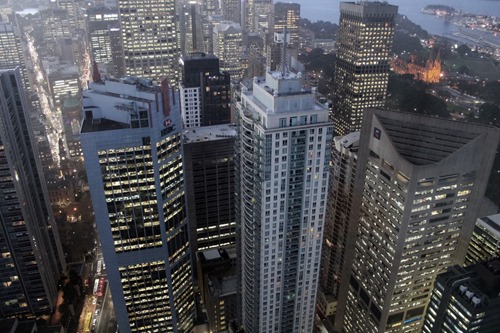Be sure to call your Mayor
/city_1.jpg)
We all know it. Cities have always been important for STPs, whether they were located in downtown areas or in the outskirts. But the importance of cities in the knowledge-based economy is growing exponentially. More and more cities have decided to become proactively engaged in the development of the knowledge-based economy or, if you prefer, of an economy based on innovation and technology which will have both strong local roots and a clear global focus.
This new and highly dynamic attitude of more and more cities can be a perfect renewed ground for STPs to operate, reinforce their relevance and acquire new and more ambitious importance.
Here is why: in most cases, the tools that cities are considering, preparing and already implementing are tools that STPs know a lot about: incubation programmes, entrepreneurship training schemes, ad hoc facilities for young entrepreneurs (the famous “millennials”) enhancement of collaborative networking habits, etc.
The management teams of most STPs have a lot to offer to their cities by making their expertise and knowledge available. This is already happening in various places around the world, and I would like to invite all our members to review their situation vis-à-vis their city or closest urban areas, and make sure that your city council and authorities know you personally (not just on paper), and, most of all, are aware of your strengths and expertise.
Here are a few suggested steps on how you may like to proceed:
- Get to know or strengthen your relations with your Mayor, Vice Mayor or the department chiefs directly related to the city’s economic development.
- Know in detail, and analyse, the city’s strategy for the development of the knowledge economy.
- Compare this strategy with your own goals, and check which are the main common elements between them.
- Put together a clear inventory of all your skills, past experience, currently programmes and general expertise that could be used by the city in the development of their strategy.
- Be active in using your local media (newspapers, TV and radio stations) to talk about the important role of the city, its strategy for economic development, and how well this strategy and the goals and experience of the STP match.
- Don’t wait for your mayor or local authorities to call you. Take the initiative - ask for joint meetings, and come up with specific proposals for how your STP can support their strategy. Volunteer yourself to provide support or even to lead some actions. Make your suggestions in a way that no one responsible for economic development at your city council feels that you intend to be a competitor or to steal their protagonism. At this stage, the right communication approach is crucial.
Depending on your relative strength within the local community, and the level of existing relations between the STP and city council, the STP role can vary from ancillary and supporting to actually becoming the real engine and leader of the city strategy. Obviously, I think that STPs should aspire to play as important a role as possible, preferably a leadership one, within the new knowledge economy at the city level.
How to succeed in this endeavour will depend on many factors, but the growing dynamism of cities is a great opportunity that may not come twice. Make sure that you grasp it with both hands and become a solid tool for city development. In other words, take this opportunity to further expand the impact and influence of your STP outside its original physical boundaries. Successful parks are like big stars: they have their own nucleus but they also have a huge gravitational field full of planets and satellites.
/)

/Luis_Sanz.jpg)

/canvascolor(0xffffffff)/Logo_ITP-01_1.jpg)
/canvascolor(0xffffffff)/MemberLogo-41301-6054.gif)
/canvascolor(0xffffffff)/2017_11_17_Taiwan_Southern_Taiwan_SP.png)
/canvascolor(0xffffffff)/RSTP_Logo-01_8.png)
/canvascolor(0xffffffff)/MemberLogo-5701-6142.jpg)
/canvascolor(0xffffffff)/parquecientificoblancoh_1.jpg)
/canvascolor(0xffffffff)/logo_Magurele_Science_Park_ok_3.jpg)
/canvascolor(0xffffffff)/2020_09_24_Turkey_Teknopark_Istanbul.png)
/canvascolor(0xffffffff)/2021_Spain_PCT__lava.png)
/canvascolor(0xffffffff)/2018_01_25_Italy_Comonext.png)
/canvascolor(0xffffffff)/Technology_Park_Ljubljana.png)
/canvascolor(0xffffffff)/ppnt_logo_EN.png)
/canvascolor(0xffffffff)/MemberLogo-36401-6008.png)
/canvascolor(0xffffffff)/Connect_MPID_Tagline_RGB_Lockup.png)
/canvascolor(0xffffffff)/2018_08_14_Qatar_Qatar_Science_Park.jpg)
/canvascolor(0xffffffff)/logo_2_(para_rodape_)_1.png)
/canvascolor(0xffffffff)/MemberLogo-5594-6012.jpg)
/canvascolor(0xffffffff)/2025_08_27_Brazil_Sao_Paulo_Innovation_District.jpg)
/canvascolor(0xffffffff)/2017_10_31_Spain_Fundacion_Comunitat_Valencian.jpg)
/canvascolor(0xffffffff)/2017_08_04_ATV.png)
/canvascolor(0xffffffff)/2025_01_30_The_Netherlands_Noviotech_campus.png)
/canvascolor(0xffffffff)/2023_07_27_Italy_Road_2.jpg)
/canvascolor(0xffffffff)/2024_05_24_Kenya_Tharaka_University.jpg)
/canvascolor(0xffffffff)/HiRes_logo_transparent.png)
/canvascolor(0xffffffff)/KL_LOGO_stor.jpg)
